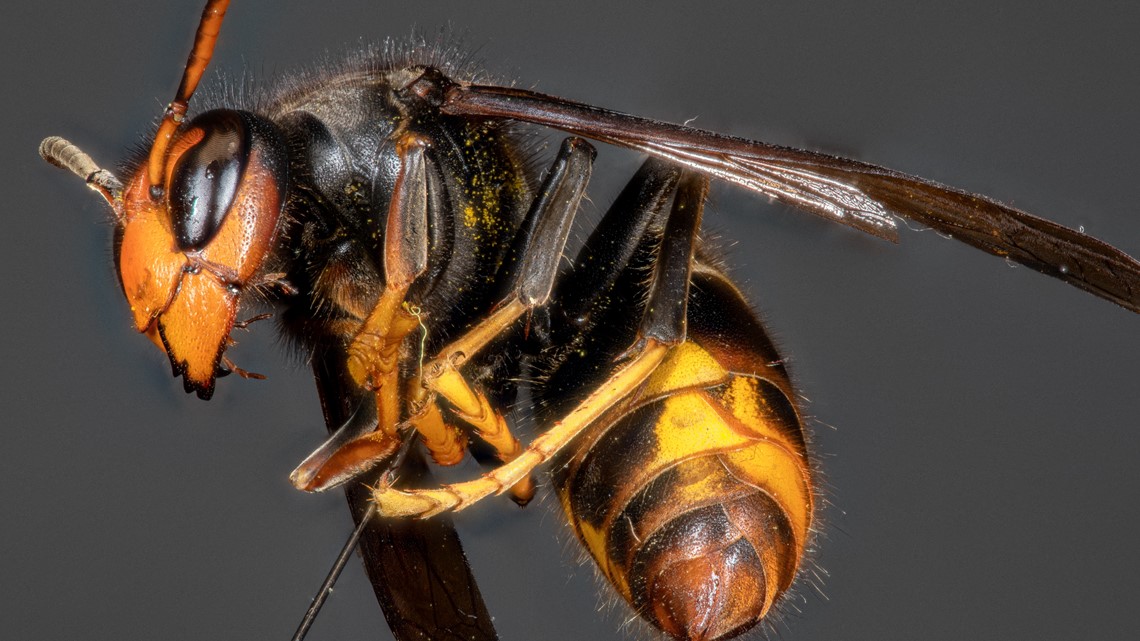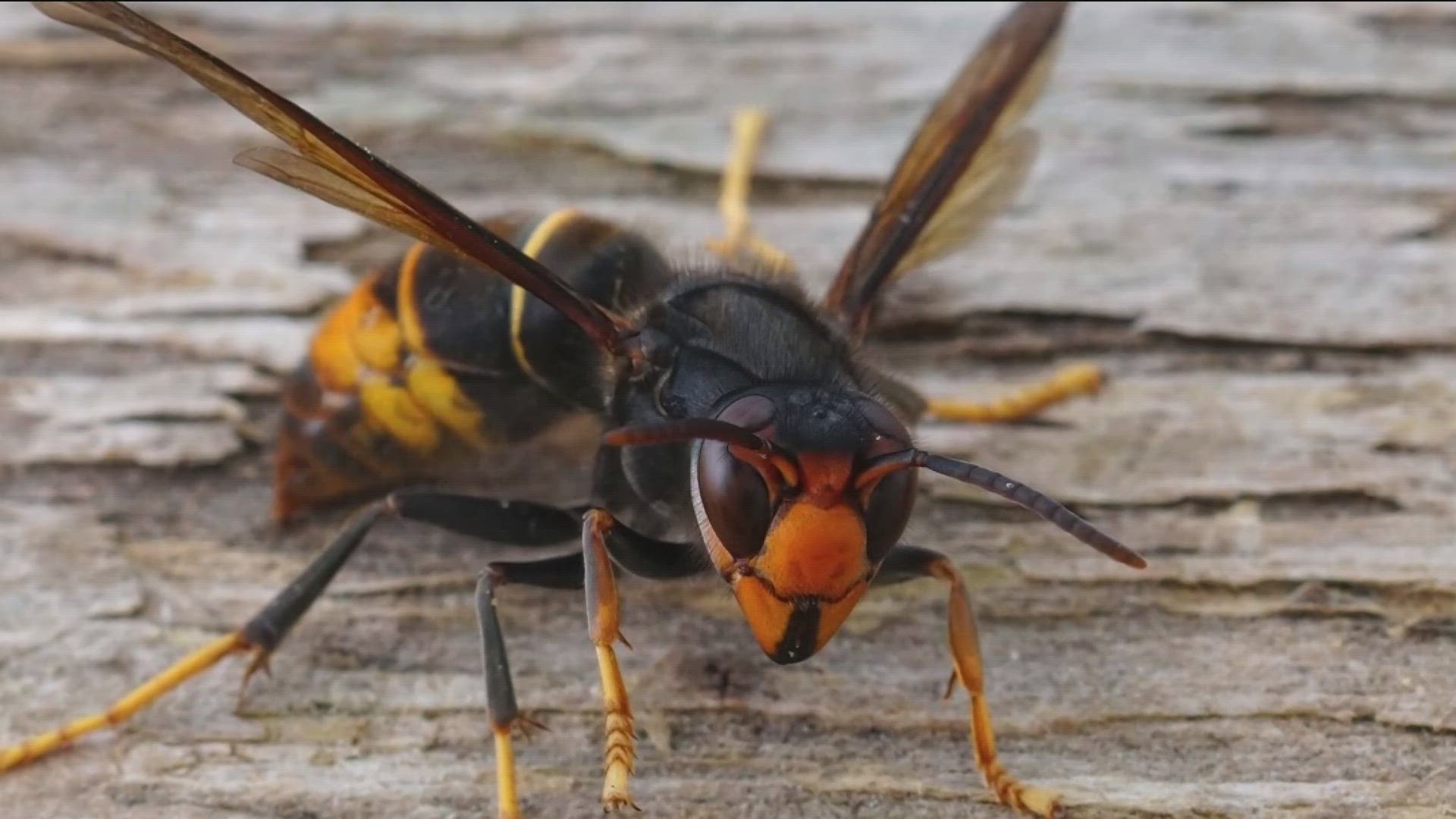ATLANTA — Georgia officials said Friday they had located and taken out a yellow-legged hornet nest, a little less than two weeks after reporting the first sighting of the non-native hornet - which can be highly harmful for honeybee populations.
"This is a huge win for Georgia agriculture, a big win for the citizens of this state," Georgia Department of Agriculture Commissioner Tyler Harper said of the nest removal.
The hornet, also called the Asian hornet (Vespa velutina), was spotted in the Savannah area. Harper said at Friday's press conference it was the first open sighting of the hornet in the United States. The hornet is a close relative of the so-called "murder hornet," or Asian giant hornet (Vespa mandarinia).
Harper added that there had been four confirmed sightings all in the general area of where the nest was eventually found on a beekeeping property.
No one was stung or injured in the removal, Harper said.
A replay of the press conference is available below:
Harper had a portion of the very large nest - which UGA professor Will Hudson said can house 5,000-6,000 hornets - at the press conference. He said the portion only represented about 25-30% of the total nest.




Harper said officials would remain vigilant and continue to monitor for presence of the hornets, but Hudson, the UGA professor, noted that if the queen is killed, "that's it" - the colony won't re-form the following spring.
Hudson added that they'll have an advantage in continuing to monitor for yellow-legged hornets - the hornets specifically seek out honeybees, unlike Georgia's native hornets that prey on a variety of insects. And most honeybee populations are already being monitored by beekeepers.
"We're obviously excited that we were able to find this nest, because we know of the issues and the concerns in regards to what the hornet means as a threat to our No. 1 industry (agriculture) and in order to protect our No. 1 industry it is vital that we eradicate this hornet from our state," Harper said.
The agriculture commissioner added that the state continues to ask for the public's help in reporting further sightings, which you can do at this website.
More about the yellow-legged hornet
The finding of the hornet was reported on Aug. 9 and confirmed by the University of Georgia and the federal Animal and Plant Health Inspection Service (APHIS).
The University of Florida's Institute of Food and Agricultural Sciences notes it has "invaded several European regions" and is a "pest of honey bees and a major concern concern to many beekeepers."
Anyone who believes they have seen a yellow-legged hornet is asked to use this form to report it, or email yellow.legged.hornet@agr.georgia.gov.
It's generally identifiable as "the legs are partially or primarily yellow, hence the common name 'yellow-legged hornet,'" and "the body and head coloration can vary. "
The Georgia Department of Agriculture describes the yellow-legged hornet as a "social wasp species that constructs egg-shaped paper nests above ground, often in trees."
"These nests can become large, housing an average of 6,000 workers. The yellow-legged hornet is native to tropical and subtropical areas of Southeast Asia. It is also established in most of Europe, parts of the Middle East, and parts of Asia where it isn’t native," a release said.

